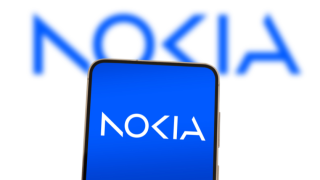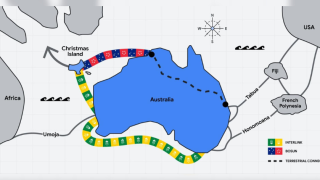After 28 years of organic growth, African carrier CMC Networks is on the lookout for acquisitions. Founder and CEO Grant Walker says that the company is engaged in “a couple” of negotiations, partly to acquire fibre assets, partly to acquire people and intellectual property.
Why now? It helps that in February the largest private equity fund in the world bought control of CMC for a sum believed to be more than $100 million.
The Carlyle Group, whose investments include stakes in French telecoms group Altice and US mobile services company Syniverse, now has a majority stake in CMC, which is based between the South African cities of Pretoria and Johannesburg.
The money comes from Carlyle’s Sub-Saharan Africa Fund, which has already invested almost $300 million of its $698 million of committed capital “across a variety of industries” – making it likely that CMC is one of its largest investments since the fund was set up five years ago.
CMC, which Walker set up in 1989, has the largest managed connectivity network in Africa, with a footprint extending to the Middle East. It interconnects with 50 of the world’s carriers.
Carlyle met Walker’s criteria when he started the hunt for an investor. “We were looking for pretty deep pockets,” he says. “We are the biggest performing African carrier, with 50 countries and 90 PoPs. In the Middle East we have 14 countries and 23 PoPs and we are growing.” And the group has just made its first moves into South America and central Asia.
The hunt began when “one of our investors wanted to step down”, he says. “We had 20-30 people knocking on our door each month and we went to see what is out there. Carlyle came in with very deep pockets – and we thought we could utilise the relationship.” The new investor “can support our strategy in the Middle East and Africa”.
He doesn’t expect anything from cross-fertilisation with other Carlyle investments. “They don’t look to interfere unless the business is not performing,” says Walker. But there’s a new board with new people and the outlook is positive. “It comes down to the ability to deliver.”
Low-key company
So what’s the CMC story? “We’ve always been a very low-key company,” says Walker, who began the company “out of the boot of a car. When I started the business I was 18 years old. I was young and dumb and an extravert.”
Since then, “we have been on a growth path”. There was one point of presence 15 years ago and three locations, to today’s extensive network.
It’s almost all wholesale. That’s CMC’s focus today, though it has had enterprise customers in the past. “We have reduced our enterprise business, but we are not going to leave any client that supports us,” he says. “If one of our clients wants to migrate from us we will support them, but we will not chase new enterprise business. There are legacy clients that we shall let go in the right circumstances. They have been good to us.”
CMC focused on wholesale to avoid competition from other operators in the African market, operators that are CMC’s customers, he says. “When others moved into our space we moved 100% wholesale and moved away from any kind of competition. There are others that do enterprise and wholesale. So if we’re coming to a channel, we’re committing to a channel.”
Which operators does CMC work with in the wholesale market? That, Walker won’t say. “There’s not a carrier that doesn’t deal with us. There are many case studies we could use, but unfortunately we can’t.” He mentions one “very large customer” – no names – that “turned a large loss to a profit on a regional network in a year after it moved to us”.
He adds: “A lot of awards are won by our clients” – for projects that run on CMC’s network, he means. “They always want to imply they own their own network but they’re our clients and it’s good for us.”
African network challenges
There are other stories he can’t tell – of challenges installing networks in some parts of Africa, for example. But CMC has focused on delivering advanced products to the market.
“We did the first pan-African MPLS and Ethernet services,” claims Walker. And Africa holds huge promise: “In the next ten years, one in four people in the world will be born in Africa. Already half of Nigeria is under the age of 15.”
Africa is “where the world’s new resources are coming from”, and he expects huge investment over the next 15 years in enterprises across the continent.
For this “you’ve got to have the right network. It’s very important to understand that we can support those enterprises,” he says. Service delivery is key. “We stack up some very good numbers. “We put in resilience and back-ups. There is no one else in Africa who comes close.” CMC uses its own fibre where it can, but ensures there is redundancy “so there is no single point of failure”, he says. “We do have a fantastic reputation in the market.”
Walker didn’t say so, but one of the long-term challenges of Africa – finally being overcome thanks to investments in telecoms – is that traditional networks and connections still echo the old colonial relationships, meaning that calls and data often had to be routed via London or Paris. CMC and its competitors are at last consigning that to history.
Service delivery
“We use very new technologies that we develop ourselves,” says Walker. “We have our own intellectual property and and engineering, running on Cisco platforms, which we manipulate to meet our requirements.” In order to achieve resilience, “we have the ability to jump and switch across circuits in hundredths of seconds”, he adds. “Our service delivery performance is beyond what others can do.”
The aim is “to deliver new products across Africa, but we’re not cheap and we don’t get a return on day one”, he warns. “We’ve got to retain the pioneering view, continuously. We have a great story and Carlyle was intrigued by it. And now we’ve a good match.”
Walker says the company has “always had a seven-year view” of where it’s going, “whether for investors or for clients. We’ve pretty much lived up to that over the years. We have a good vision and the ability to deploy products essential to our customers.”
CMC has a range of products in the research and development queue waiting for deployment, he says. But one of the challenges is getting the right staff as the company expands. “If there are dynamic people in a region, and if we are looking for people, that’s how we’d acquire people. It’s a very simple way to help us grow,” he says.
“We hold on to our staff,” Walker adds. “We don’t talk about staff turnover,” because there isn’t much. Until the Carlyle investment every single director had been on the board for 11-21 years, he says, and “middle management had not moved”.
Google on steroids
So how do he and his colleagues motivate staff, who have traditionally looked for promotion to more responsible positions as senior people leave? “We’re a fun company – we’re like Google on steroids. It has to be when you’ve got a lunatic running it,” he claims, referring to himself in that last comment. But also the company has grown, so it’s been possible to move people around into senior positions across the expanding network.
“I don’t believe that we’ve ever had to ask anyone to leave. If people can’t fulfil their role, they’ll tell us and we’ll reposition them in the business. In some cases we’ve moved people four times – we find what works for them. Trust is better than mistrust.” If people are abusing the company’s trust “they get so guilty because everyone else is so dynamic”, he said. He’s been having fun since he started the company. “As people joined I wouldn’t stop having fun.”
Over the years “we’ve been through the mill”, in one of his few comments that hint it hasn’t always been fun. “It’s taken a lot of guts and hard work. Sometimes you have to put your life in your hands.”
He adds: “It’s taken us 28 years. But we’re empowering Africa and taking our ideas to other regions that don’t appear to be as different – areas such as South America and the Middle East.”
And now we will just have to wait to see where CMC spends the cash from Carlyle’s deep pockets.





